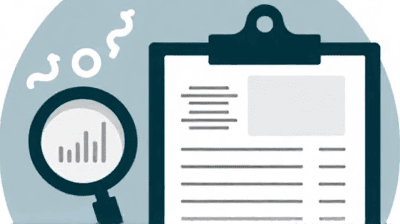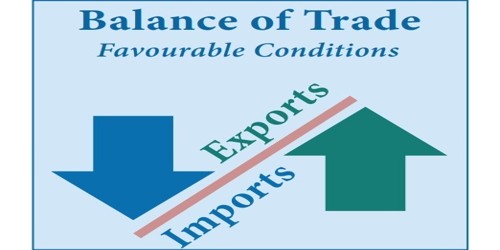
Receiving your paycheck is often a highlight of the workweek, but deciphering its contents can be a daunting task for many. Understanding the various components of your paycheck, including taxes, deductions, and more, is crucial for effective personal finance management.
The Structure of a Paycheck
Before delving into the specifics of taxes and deductions, it is essential to understand the basic structure of a paycheck. A typical paycheck includes several sections:
1. Personal Information
This section typically contains your name, employee ID number, address, and the pay period covered by the check.
2. Gross Pay
Gross pay is the total amount you earn before any deductions are made. This includes your base salary or hourly wage, overtime pay, bonuses, and any other forms of compensation.
3. Deductions
This section outlines various deductions taken from your gross pay. Deductions can be mandatory, such as taxes and Social Security contributions, or voluntary, such as retirement contributions or health insurance premiums.
4. Net Pay
Net pay, often referred to as take-home pay, is the amount you receive after all deductions have been subtracted from your gross pay. This is the final number that is deposited into your bank account or given to you as a check.
Understanding Taxes on Your Paycheck

1. Federal Income Tax
Federal income tax is a progressive tax applied to your earnings based on your income bracket. The amount withheld from your paycheck is determined by several factors, including your filing status, the number of allowances claimed on your W-4 form, and any additional amounts you may choose to withhold.
How Federal Income Tax Is Calculated
Tax Brackets: The federal government uses a series of tax brackets to determine how much tax you owe. As your income increases, you move into higher tax brackets, meaning the rate applied to your income also increases.
Withholding Allowances: The number of allowances you claim on your W-4 form directly affects your federal income tax withholding. Generally, fewer allowances mean higher withholding, while more allowances result in lower withholding.
2. State Income Tax
Many states impose their own income tax, which can vary significantly by state. Some states have a flat tax rate, while others have a progressive structure similar to federal income tax.
Key Considerations for State Income Tax
Residency Status: Your state tax liability may depend on your residency status. Some states tax all income earned within their borders, while others may have different rules for non-residents.
Local Taxes: In addition to state income tax, some municipalities impose local income taxes. These are typically a percentage of your income and are often used to fund local services and programs.
3. Social Security Tax
Social Security tax is part of the Federal Insurance Contributions Act (FICA) tax, which helps fund the Social Security program, providing benefits to retirees, disabled individuals, and survivors of deceased workers.
Current Social Security Tax Rate
As of the last update, the Social Security tax rate is 6.2 percent on earnings up to a certain limit, known as the wage base limit. The wage base limit is adjusted annually, so it is important to stay informed about the current threshold.
4. Medicare Tax
Medicare tax, also part of FICA, funds the Medicare program, which provides health coverage for individuals age 65 and older, as well as certain younger individuals with disabilities.
Current Medicare Tax Rate
The standard Medicare tax rate is 1.45 percent, with an additional 0.9 percent tax applied to high-income earners above a certain threshold.
5. Other Taxes
Depending on your situation, other taxes may appear on your paycheck, including:
Additional Medicare Tax: Higher-income households may face an additional Medicare tax.
Self-Employment Tax: If you are self-employed, you are responsible for both the employee and employer portions of FICA taxes, effectively doubling your rate.
The Role of Deductions in Your Paycheck
Deductions on your paycheck can significantly impact your take-home pay. Understanding both mandatory and voluntary deductions is vital for managing your finances effectively.
1. Mandatory Deductions
Mandatory deductions are required by law and generally include:
Federal Income Tax: As discussed earlier, federal taxes are withheld based on your income and W-4 allowances.
State Income Tax: Similar to federal tax, state tax is withheld based on your income and may vary by state.
Social Security and Medicare Taxes: Both taxes fund vital government programs and are automatically deducted from your paycheck.
2. Voluntary Deductions
Voluntary deductions are optional and can include various benefits that employers offer. These may include:
Health Insurance Premiums: Many employers offer health insurance plans, and if you choose to participate, your monthly premium is deducted directly from your paycheck.
Retirement Contributions: Contributions to retirement plans, such as a 401(k) or IRA, are often deducted from your paycheck. Many employers offer matching contributions as an incentive to save for retirement.
Life Insurance Premiums: If you opt for life insurance through your employer, premiums may be deducted from each paycheck.
Flexible Spending Accounts (FSAs) and Health Savings Accounts (HSAs): These accounts allow you to set aside pre-tax dollars for healthcare and dependent care expenses, reducing your taxable income.
How to Read Your Paycheck Stub

Understanding how to read your paycheck stub can provide clarity on where your money goes each pay period. Here is a breakdown of the key components of a typical paycheck stub:
1. Employee Information
Look for your name, employee ID, and pay period details. This information confirms that the paycheck belongs to you and the timeframe for which you are being compensated.
2. Earnings Section
This section details your gross pay, along with any additional payments (e.g., overtime, bonuses, or commissions). Review it for accuracy to ensure you are being compensated correctly for your work.
3. Deductions Section
The deductions section of your paycheck stub lists all mandatory and voluntary deductions. Understanding each deduction helps you see how much is taken out of your gross pay and allows you to evaluate your current financial status.
4. Net Pay
At the bottom of the paycheck stub, you will find your net pay, which reflects the amount you take home after all deductions. This is the amount that will be directly deposited into your bank account or provided to you as a physical check.
5. Year-to-Date (YTD) Totals
Most paycheck stubs provide year-to-date totals for gross pay, deductions, and net pay. This information is helpful for tracking your earnings and budgeting over the course of the year.
The Importance of Periodic Review
Regularly reviewing your paycheck is essential for staying on top of your personal finances and ensuring that you are making the most of your income. Here are a few reasons to maintain a habit of paycheck review:
1. Identify Errors
Mistakes can occur with payroll, resulting in inaccurate paychecks. By reviewing your paycheck regularly, you can identify discrepancies and take action to correct them promptly.
2. Monitor Your Financial Health
Keeping track of your earnings and deductions allows you to assess your overall financial health. You will be better equipped to make informed decisions about budgeting and spending.
3. Evaluate Benefits and Contributions
As you review your paycheck, pay attention to your contributions toward benefits such as retirement accounts and health insurance. Assess whether these contributions align with your financial goals and adjust as necessary.
4. Plan for Tax Season
Understanding your withholdings helps you prepare for tax season. If you consistently receive large refunds or owe taxes each year, you may want to adjust your W-4 withholding allowances accordingly.
Strategies for Maximizing Your Paycheck

Once you have a clear understanding of your paycheck, you can take steps to maximize your earnings and enhance your financial situation. Here are some effective strategies:
1. Adjust Your W-4 Form
If you find that you are consistently receiving large tax refunds or owe taxes at the end of the year, consider adjusting your W-4 form. Modifying the number of allowances you claim can help you achieve a more accurate withholding amount.
2. Review Your Benefits
Take advantage of employer-sponsored benefits that can lead to significant tax savings. Whether it is contributing to a retirement account or utilizing a Flexible Spending Account (FSA), these benefits can enhance your take-home pay.
3. Set Savings Goals
Establish specific savings goals and prioritize them in your budget. Treat savings contributions as fixed expenses to ensure you regularly set aside money for emergencies, retirement, and other financial objectives.
4. Educate Yourself About Investments
Understanding investment options can help to grow your wealth over time. Consider diversifying your investments, exploring stocks, bonds, real estate, and other avenues to secure your financial future.
5. Live Within Your Means
While maximizing your paycheck is essential, it is equally important to manage your spending. Create a budget that aligns with your income and prioritize needs over wants to build a solid financial foundation.
Conclusion
Understanding your paycheck is a fundamental aspect of personal finance that empowers you to make informed decisions about your financial future. By recognizing the components of your paycheck, including taxes and deductions, you can enhance your financial literacy and better manage your money.
Regularly reviewing your paycheck allows you to identify opportunities for improvement and helps you take proactive steps in achieving your financial goals. With a solid grasp of your financial situation, you can implement strategies to increase your earnings, save effectively, and invest wisely.
In the changing landscape of personal finance, knowledge is power. By becoming well-acquainted with your paycheck and its implications, you can set yourself up for long-term financial success.








